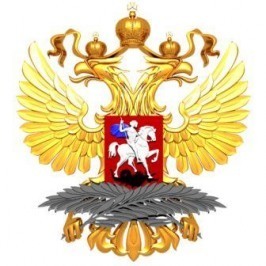On January 31, 2024, the UN International Court of Justice released its final Judgment in the dispute with Russia initiated by Ukraine in January 2017, based on the Convention on the Elimination of All Forms of Racial Discrimination (CERD). The court rejected practically all Ukraine’s demands and recognised that Russia’s policy conforms to its commitments under the convention. There is no discrimination against Crimean Tatars and Ukrainians in Crimea.
The main false accusation levelled by Kiev against Russia was that Russia’s law-enforcement actions against members of the terrorist group Hizb ut-Tahrir and the extremist groups Tablighi Jamaat and the Mejlis of the Crimean Tatar People constituted persecution of Crimean Tatars on ethnic grounds. The court did not agree with this assessment. It did not find any elements of discrimination in the standards of Russian anti-extremist legislation. Nor did it detect any signs of racial discrimination in the application of these standards by Russian law-enforcement bodies.
The court did not find that the ban on the Mejlis, which Russia has outlawed as an extremist organisation, violated the Convention. It emphasised in its Judgment that the Qurultay is the representative body of the Crimean Tatar people. It was not banned and continues fulfilling its functions in Crimea.
The court rejected Ukraine’s accusations of Russia’s alleged involvement in the targeted murders and abductions of Crimean Tatars and Ukrainians in Crimea.
The court also rejected all Ukraine’s claims on the issues of citizenship. It did not identify any cases of racial discrimination in the Russian laws on granting citizenship in Crimea since 2014.
Ukraine’s allegations about the infringement of the rights of the Crimean Tatars and Ukrainians to access to their national media, assemblies and rallies and the preservation of cultural heritage sites were also found to lack merit.
Russia’s restoration of the Khan’s Palace in Bachchisarai was not a “cultural catastrophe” as Ukrainian representatives tried to present it. It was necessary to remedy the effects of negligence on the part of the Ukrainian authorities that had brought this landmark of history and culture to a dilapidated state.
The International Court of Justice recognised that the residents of Crimea have access to education in the Crimean Tatar and Ukrainian languages. At the same time, a majority on the court ruled that the sharp reduction in the number of schools with instruction in Ukrainian after Crimea’s transfer to Russia’s jurisdiction in 2014, is a violation of its commitments on the right to education under the CERD.
This finding is controversial enough, especially considering that the court admitted that Crimeans chose instruction in Russian of their own free will. Were the Russian authorities supposed to drag children into Ukrainian schools against their will? All those who want instruction in Ukrainian will be granted this opportunity in one way or another in accordance with current legislation.
The case is over. Russia is not supposed to take any special action to fulfil this judgment. All of Ukraine’s demands for reparations have been rejected.























